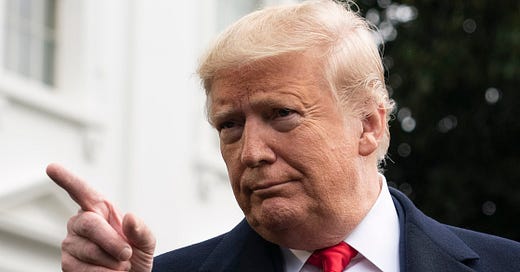In a world that’s more connected—and more precarious—than ever, global diplomacy hinges on trust, consistency, and respect. Yet during this second presidency, Donald Trump is treating America’s allies with open disdain while extending unearned courtesies to regimes known for suppressing freedoms and threatening stability.
I rarely ascribe anything rational to Greta Thunberg, but in this case, her words—“How dare you?”—are apt.
Why is Trump browbeating America’s allies?
It began with Canada—a country that has fought side by side with the U.S. in every major conflict since World War I—yet Trump imposed steel and aluminum tariffs under the false pretense of national security. What is fentanyl? Is Canada a threat to U.S. security? The insult wasn’t just economic—it was personal. Remember the Dale Carnegie book How to Win Friends & Influence People? The Trump doctrine seems to be How to Influence People and Make Enemies.
Next came Denmark. In an astonishing moment of geopolitical arrogance, Trump suggested the U.S. should purchase Greenland, an autonomous territory of Denmark. When Danish leaders predictably rejected the idea, he canceled a planned state visit. Diplomatic tantrums rarely get more juvenile—or more damaging.
And now Australia, where I reside—perhaps America’s most reliable partner in the Pacific—wasn’t spared. Instead of recognizing our consistent military contributions—including Vietnam—and shared democratic values, Trump is publicly pressuring us to increase defense spending while simultaneously burdening the relationship by radically increasing tariffs. I say to Mr. Trump: take your marbles—your bases—and leave us alone. We can do business with China, India, and other Asian nations.
Imagine another leader coming to America and telling it how to run its financial house. In fact, Trump is playing the victim and deflecting onto others America’s dismal record on debt and uncontrolled spending.
Meanwhile, Trump is embracing some of the worst terror states.
At the same time, Trump is cozying up to leaders and governments that have long stood in opposition to the West’s values. Iran’s government, which sponsors terrorism and suppresses dissent, received bizarre overtures. Trump is delusional if he thinks the radical regime in Tehran will acquiesce to his wishes. They have been secretly working to develop nuclear weapons and hid sites from inspectors even during the Obama administration’s nuclear deal.
I recently met an Iranian man living in Dallas, Texas, and he told me that Trump won’t do anything about Iran—it’s all bluster. The Iranian regime is adept at deceiving the West.
Syria is now under the control of Ahmed al-Sharaa, a terrorist in a suit. Formerly, he was with Al-Qaeda. Trump was impressed with his good looks. I guess that’s the rationale for making deals with a killer.
And let’s not forget Qatar—a nation with a complicated relationship in the Gulf region. Despite prior criticism, the Trump administration praised Qatar for its strategic investments and military cooperation, all while ignoring ongoing concerns about its links to extremist financing. Make no mistake about it: Qatar is Hamas in ideology, financial support, and as a haven for Hamas leadership.
Trump’s foreign policy isn’t just unconventional—it is a reversal of decades of bipartisan diplomacy. He attacked NATO, threatened to withdraw from key alliances, and treated international agreements like one-sided business deals. Instead of reinforcing the values that made America a global leader—democracy, diplomacy, and shared responsibility—he leaned into unpredictability and personal dominance.
The result? Frayed alliances. Diminished trust. And a world more skeptical of America’s role on the global stage. Many nations—established friends of America—no longer trust the U.S. When allies are insulted and adversaries embraced, the message is clear: values no longer matter—only deals, dollars, and deference.
It will take years—perhaps decades—to rebuild what was so casually undermined. America’s greatness was never built on isolation or intimidation. It was built through partnership, trust, and principled leadership.




Donald Trump's inconsistency is undermining whatever ideals that people might - and have - supported. Making America Great Again is fine - but if they want to maintain global supremacy while undermining and dissing their allies, they will be walking a precarious path.
Trump's words and actions regarding Big Pharma - and "his" "beautiful vaccines" and all the other crap - make it impossible to trust him. RFK needs to move gradually - sure. But he has a record of integrity and consistency over many years, and I feel he can be trusted to do what he can, within the political structure. Trump is another story - all over the place, and people are still making justifications for his actions and believing that he is some sort of saviour.
Trump may be better than the presented alternative - Kamala Harris. But that is a long way from thinking he can do no wrong.
I would say that in the past, the USA relationship with allies has been built on threats. They’ve threatened countries who refuse to promote transgender cult ideology and are well known in geopolitical circles to place people in the bureaucracies of their allies who have pledged allegiance to USA interests over the interests of their own people. The USA has also always blamed other countries for things they themselves are doing.